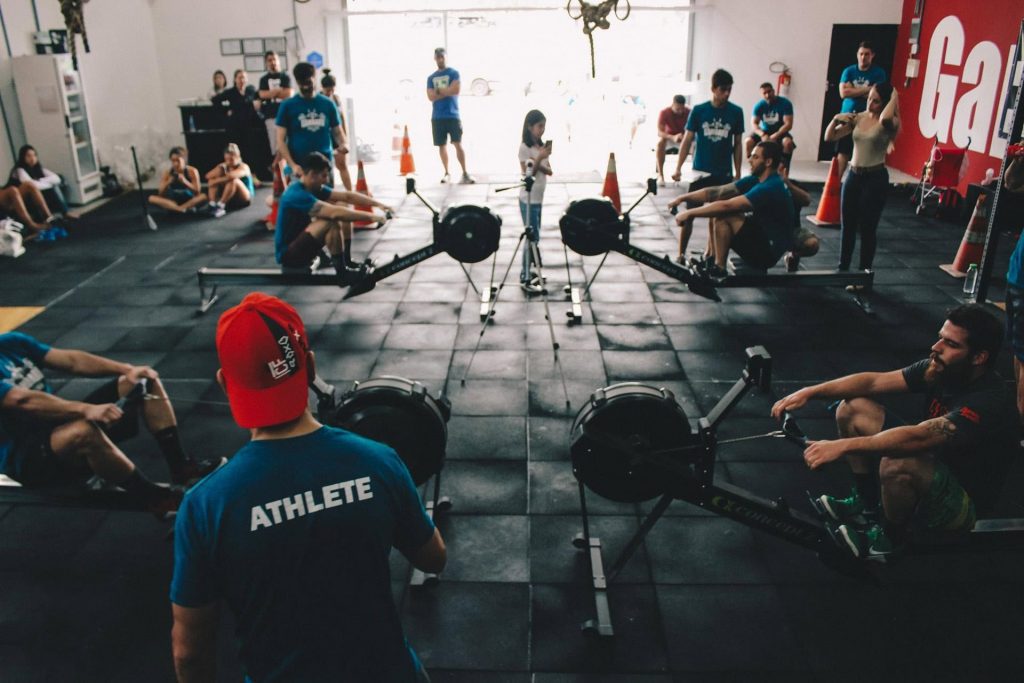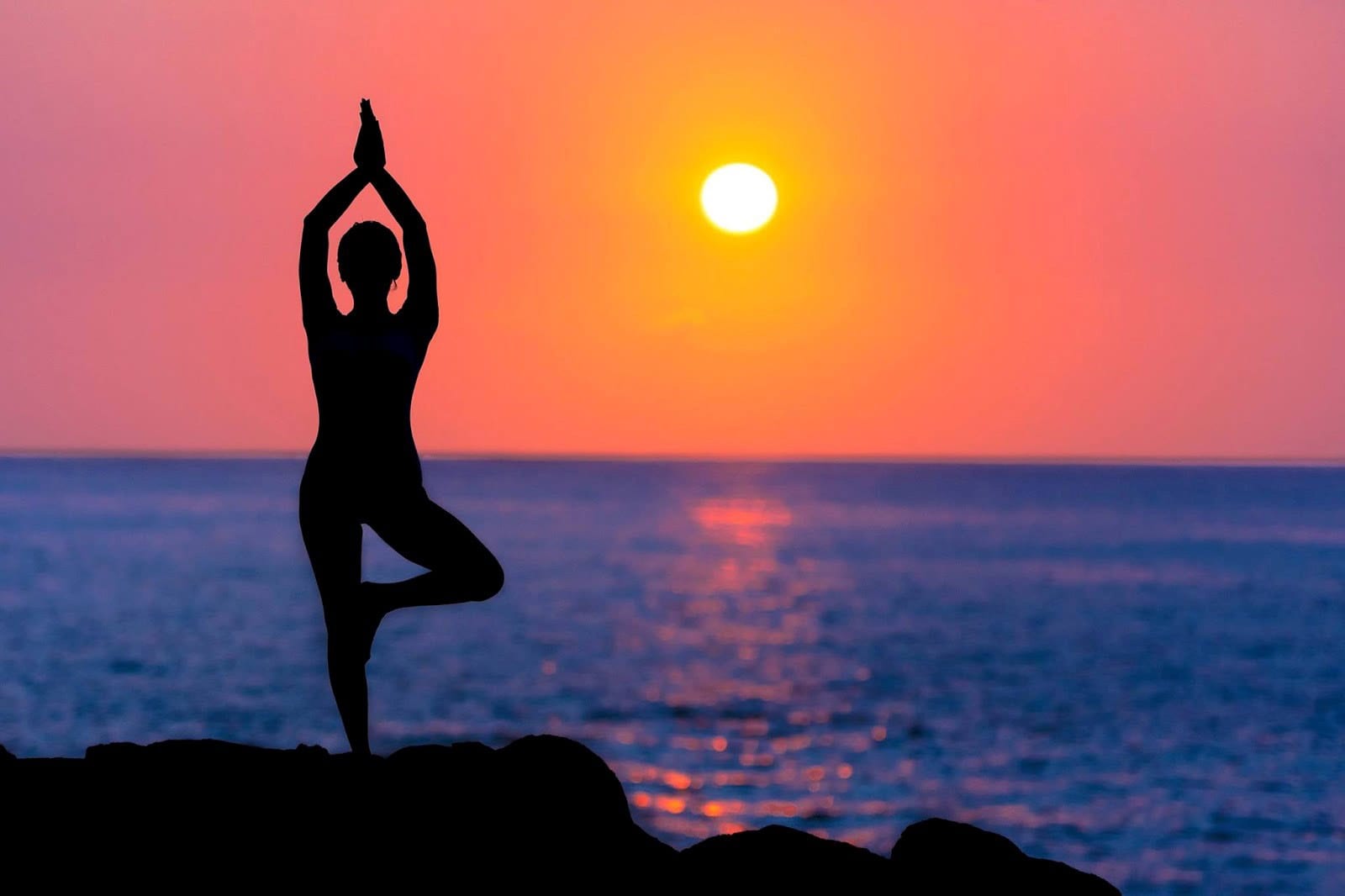It’s been suggested that when your brain is feeling stressed or anxious it’s likely to negatively impact other parts of the body. Becoming fatigued, losing concentration and experiencing physical symptoms such as shaking and dizziness are common. Can exercise make your body feel better by banishing your negative thoughts and actually give you peace of mind? Let’s find out.
For many people suffering from anxiety, there doesn’t seem to be an answer to beating it. There are a range of ways of dealing with it, from seeing a doctor or therapist, taking medication or even trying herbal remedies, though most people aren’t aware that exercise can help, too. Exercising is considered to be as powerful as some medicines in coping with anxiety and actually defeating it. Time to find out why.
Inactivity Can Contribute To Anxiety
People who lead inactive lifestyles may find their bodies experience a buildup of physical stress, which can be felt as emotional stress – it can be difficult for your body to know the difference.
Hence, we’re seeing more and more studies showing a very strong correlation between a lack of physical activity and the development of anxiety disorders. Here are some potential reasons why:
Increased Levels of Cortisol
Cortisol is a stress hormone that is released when you feel anxious. Movement has been proven to deplete cortisol and combat your anxiety, making you feel yourself again. Dealing with anxiety is often seen as a matter of “fight or flight”. By being inactive, you are in effect giving yourself no distractions to “run away” from the problem and instead are faced with fighting your feelings. Many of those affected will know that “fighting” anxiety can feel like a tough battle.
Tip: Make your chances of beating anxiety greater by practicing “flight” through exercising. Completing just 10 minutes of physical activity each day can help to combat stress and keep your mind happy and healthy. That could be a simple walk to the park or a putter around the shops. Great!
“Psychologists studying how exercise relieves anxiety and depression suggest that a 10-minute walk may be just as good as a 45-minute workout.” – Anxiety and Depression Association of America (ADAA)
Unused Energy Creates Mental Tension
Unused energy is seen as one of the most common reasons why people experience anxiety. If you don’t exhaust your body’s energy it can turn into physical tension which, if not relieved, can develop into mental tension. Unfortunately, that can lead to anxious episodes and even panic attacks.
Tip: Exercise as part of therapy. By introducing physical activity into your daily routine you’re likely to significantly reduce your symptoms over time, compared to completing one vigorous exercise session which may only alleviate symptoms for a few hours.
Immune System Malfunction
Your immune system is your body’s defense mechanism from disease-causing microorganisms, so looking after it is integral to your health. There is evidence to suggest that increased levels of anxiety can actually weaken the immune system, making its ability to protect you, less effective.
So, anxiety itself isn’t causing you to become ill. You still have to come into contact with viruses and bacteria to get sick and when you do your weakened immune system can struggle to fight them off. Thankfully, exercise can regulate your immune system as well as maintaining a healthy hormone balance to help reduce your anxiety-related symptoms, too.
Our 4 Best Exercises To Beat Anxiety
In many cases, getting active can be a strong factor in helping defeat your anxious thoughts, so it’s on to exploring our 4 favorite happiness-inducing exercises. Whichever form of fitness you decide to take part in, you’ll be doing your mind and body a world of good.
#1 Yoga
Yoga is such a popular, go-to exercise for people wanting to relax and channel their inner Zen. It’s great for helping you achieve peace of mind while being healthy and getting active.
The nature of yoga focuses on deep breathing and internal focus which can help those suffering with anxiety reason with their thoughts and learn to let go of them. Plus, it works! Studies show that by partaking in yoga classes you’re likely to experience significant reductions in anxiety, depression, anger, and neurotic symptoms.
#2 Hiking
Going for a weekend hike or walk in the countryside can have beneficial effects on your stress levels, more so than walking in the city. Spending time in natural environments such as woodland areas can be a breath of fresh air from day-to-day office jobs and the urban lifestyle – literally!
Being in a different environment acts as a distraction to your negative thoughts; you can meet new people and see new things, plus hiking itself is known to be a mood-boosting activity. As a result, pairing the two together can have great positive impacts on mental health.
#3 Fun Dance Classes
You should always look to do exercise that you enjoy. Just like all forms of therapy, the effect can vary. Yet, if you’re making your fitness fun, you’re more likely to experience a positive outcome.
Whether you take a Zumba class or simply get your groove on in the comfort of your own home, dancing is a great way to relieve stress and anxiety. Being a moderate to high intensity sport, you’re able to push your body physically which can contribute to improving your overall health and mood. Alongside this, dance is seen as a form of personal expression meaning it can help strengthen the relationship between mind and body.
#4 Weight Training
Stereotypically, strength training is associated with building muscle and hence it can put a lot of people off. However, partaking in strength training once a week can have strong mental benefits without causing you to build lots of muscle.
“Strength training improves mood and self-esteem, regulates sleep, and reduces stress, which can all contribute to overall feelings of wellbeing.” – Simple Most
Looking for a workout to beat your anxiety? Look no further. Here’s a great weight training workout for people looking to relieve stress.
Tip: Alternatively, if you’re wanting to add some more strength training into the activities you already enjoy, try wearing weighted gloves when working out or a weighted vest when running. Remember not to strain your body too much. If the activity already includes weights it’s best not to add anymore.
Conclusion
Getting sweaty in the gym can help improve your stress symptoms naturally and for the long run. ADDA states that science shows even “five minutes of aerobic exercise can begin to stimulate anti-anxiety effects.” Remember, it’s important to find what works best for you and when you do, make sure you don’t give up!
If you or someone you know experiences mental health issues such as anxiety, it is important to seek help from a qualified professional. Our Resource Specialist can help you find expert mental health resources to recover in your community. Contact us now for more information on this free service to our users.
Author Bio: Sara Whitehouse, SEO and Content Editor at Stadia Sports
Stadia Sports are a leading UK manufacturer and sports equipment suppliers, offering a wide range of products including football goals, football nets and accessories.
The opinions and views expressed in this guest blog do not necessarily reflect those of www.rtor.org or its sponsor, Laurel House, Inc.
Recommended for You
- Veterans and Addiction Recovery: How Families Can Support Their Service Member’s Healing Journey - July 14, 2025
- Trauma-Aware Yoga: A Gentle Path to Healing and Recovery - July 10, 2025
- Why Eating Disorders in Men Are Often Missed - July 3, 2025







Thanks for sharing the useful information. The kind of lives we live today, all of us are bound to be stressed at one point or another. To really get rid of all that lethargy, we need to do something out of routine, which can help relieve our stress eventually. One can really get rid of anxiety if he/she does yoga on a regular basis. Regular yoga brings in a sense of calmness in our mind as our mind and body both start to relax. Here are some Yoga asanas that help to lower your anxiety. https://www.healthnwellness.in/meditation/get-rid-of-anxiety-and-stress-with-yoga/
Hello this is Leo Harry. By fitness tips, the majority of us believe that we have to totally change our life-style and thus the majority of us never bother to think about various helpful fitness tips. The terror of abandoning your dietetic habits is one of the obstacles between people and fitness tips.
Thank you for all of this information! I agree with your points. Sometimes, people with anxiety who are experiencing panic attacks may feel that they can never get out of it or that they’re stuck in panicked states. I’m glad there are so many different exercises that you can do to help alleviate anxiousness. Yoga is an especially calming one. However, can’t exercise also cause panic attacks? While exercise is good for you, a workout that is too intense for you may lead to a full-blown panic attack. I learned about it in this article about exercise-induced panic attacks and how to avoid them (https://www.fitnesssolutionsplus.ca/blog/exercise-induced-panic-attacks/).